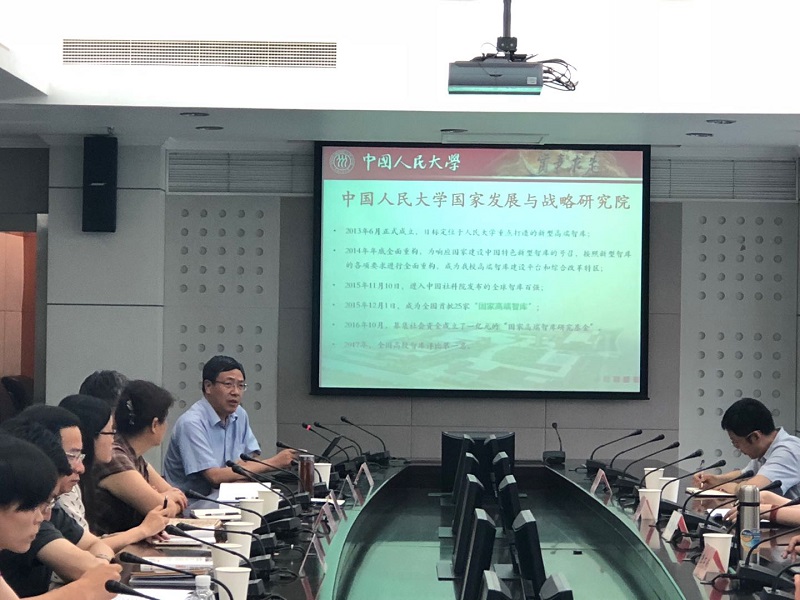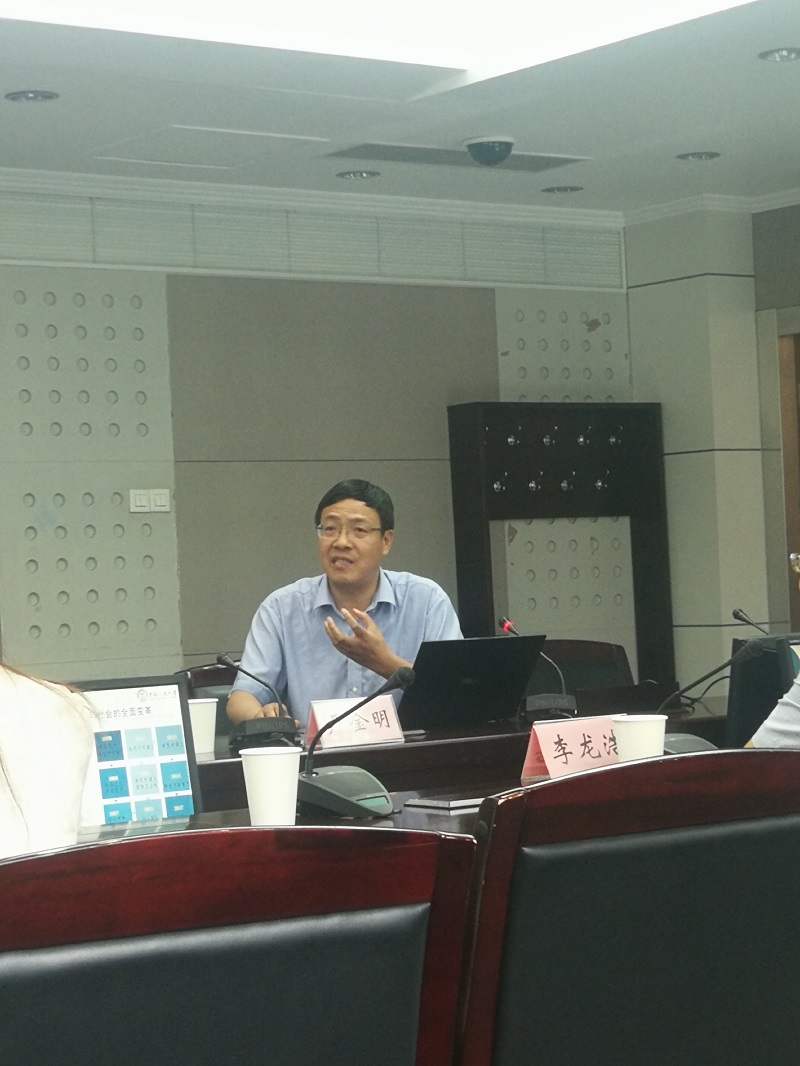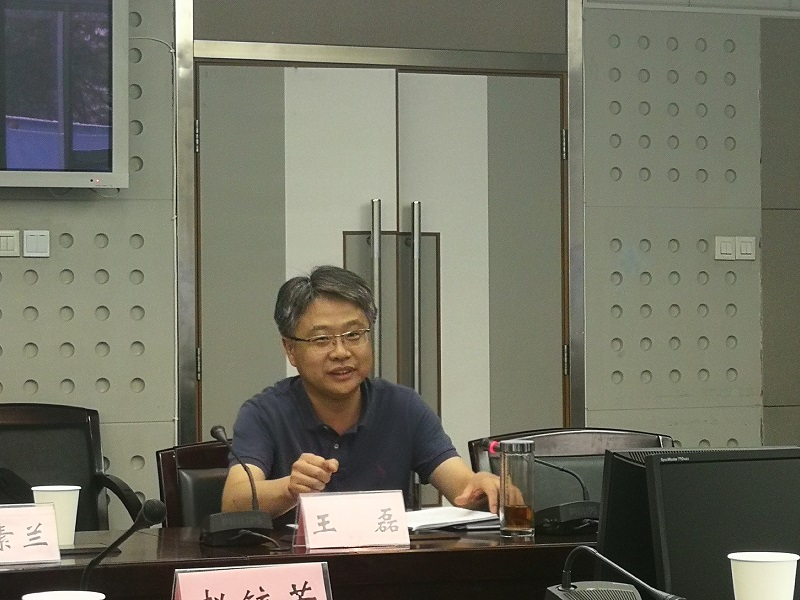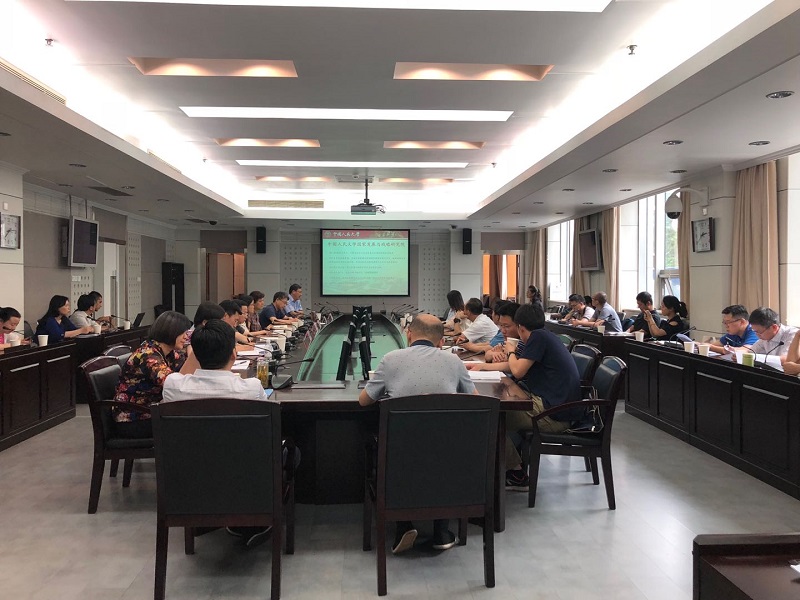 Research Update
Research Update
08
JunOn June 6th, 2018, Professor Yan Jinming, Executive Dean of the National Academy of Development and Strategy of Renmin University of China, was invited to the Ministry of Natural Resources for the General Superintendent, Law Enforcement Bureau, Inspectorate Bureau, Planning Department, Regulation Department, Utilization Division, and Cadastral Division. The Ministry of Urban and Rural Planning, the Department of Land Conservation, the Remediation Center, and the Institute of Economic and Technological Sciences and other 11 departments sets up special lectures for nearly 60 division-level cadres and staff. The theme of the lecture was "combination of multiple regulations" and the national space planning. The first lecture of the "Let's talk with each other" of the Department of Natural Resources.

Professor Yan Jinming first introduced the construction of the NADS of Renmin University of China to the guests on site. Since its establishment in 2013, with the support of school leaders, the NADS has responded to the call of the nation to build a new think tank with Chinese characteristics. It has comprehensively restructured and pushed forward institutional innovations. By the end of 2015, it has become the nation’s first batch of 25 pilot units of “national high-end think tank”. At present, MADS has about 30 full-time staff, more than 200 part-time researchers, and 20 research centers. It produces more than 300 ideological achievements every year. It receives important instructions from the Party and country leaders more than 30 times a year. Many research fellows participated in various high-level seminars and consulting activities held by the central government, ministries and commissions. The NADS also builds a local cooperative network of high-end think tanks through the construction of branch systems and local observation sites to build bridges and platforms for central decision-making and local practice.
Later, in a special lecture entitled "Multiple Regulations" and National Space Planning, Prof. Yan Jinming first started with the story of "a frog" and explained that "Hill, Water, Forest, Field, Lake and Grass" is a community of life, complete and harmonious ecosystem is conducive to the survival and development of all things and the progress of civilization in human society. Professor Yan Jinming pointed out that there are still "multi-regulatory conflicts" in the "Kowloon Marine" in the current national space planning.

Professor Yan Jinming took “Regional Agricultural Land Quality Classification Regulations” and “Gradeland Quality Grades” as examples to analyze the existence of “regular misalignment of different planning systems” and “the same planning system does not converge vertically” in the national land space planning. The issue of turmoil, in turn, puts forward the argument that the transition from “multi-regulation and integration” to “spatial planning” will be followed by an analysis of the deep social economy background behind the planning transformation in terms of the new normal economy, new population changes, new international trends, and new requirements for ecological civilization. On this basis, Professor Yan Jinming explained in detail the essence of space planning in terms of history, rights, objectives, administration, functions, and management, namely, the advanced deployment and rational arrangement of land use, administrative policy coordination, and government land governance and emphasized that the space-time planning of the country’s space plan follows.
Professor Yan Jinming also stated that the value pursuit of land and space planning lies in emphasizing “sustainable use”, emphasizing “equity and efficiency”, and integration of “three-in-one”. It also focuses on the interpretation of the reform orientation of land and space planning and should focus on the following four aspects: "Combining multiple laws and regulations" lies in the coordination of cooperation; planning as a leader, building a national land space planning system; taking the "three lines" as a baseline to advance the control of the use of the country's land and space; and taking remediation as the starting point to promote the comprehensive governance of the community of life of " Hill, Water, Forest, Field, Lake and Grass ". At the same time, we must be alert to the ecological misunderstandings of “pursuing the design of concrete and high grades”, “overemphasizing the convenience of accessibility, smooth water flow,” and “eliminating a large number of natural ponds, depressions, and mounds” in planning and design.
In the end, at the request of the organizers, Professor Yan Jinming shared with the present guests a national planning and design plan for a province in North China, and further explained some important topics in the national land space planning with actual cases. In the interactive session, Professor Yan Jinming also analyzed and answered questions such as whether the implementation of the six-level planning system or the three-tier planning system in the national land space planning is more realistic and feasible.

Wang Lei, deputy director of the State Land Chief Inspector’s Office, stated in the activity summary that the “Let's talk with each other” series of activities is planned to invite all masters and experts in theory and practice to seamlessly integrate theoretical research and management practices in the exchange. Inspire sparks of ideas, thus opening up horizons, updating ideas, inspiring thinking and furthering work.

Ma Sulan, deputy director of the National Land Inspector General Office, Ding Zhiru, deputy inspector of the State Land Inspector General Office, Li Dongyu, deputy director of the Law Enforcement Supervision Bureau, Li Longhao, deputy director of the Law Enforcement Supervision Bureau, and Zhao Yufang, deputy inspector of the Planning Department attended the event.